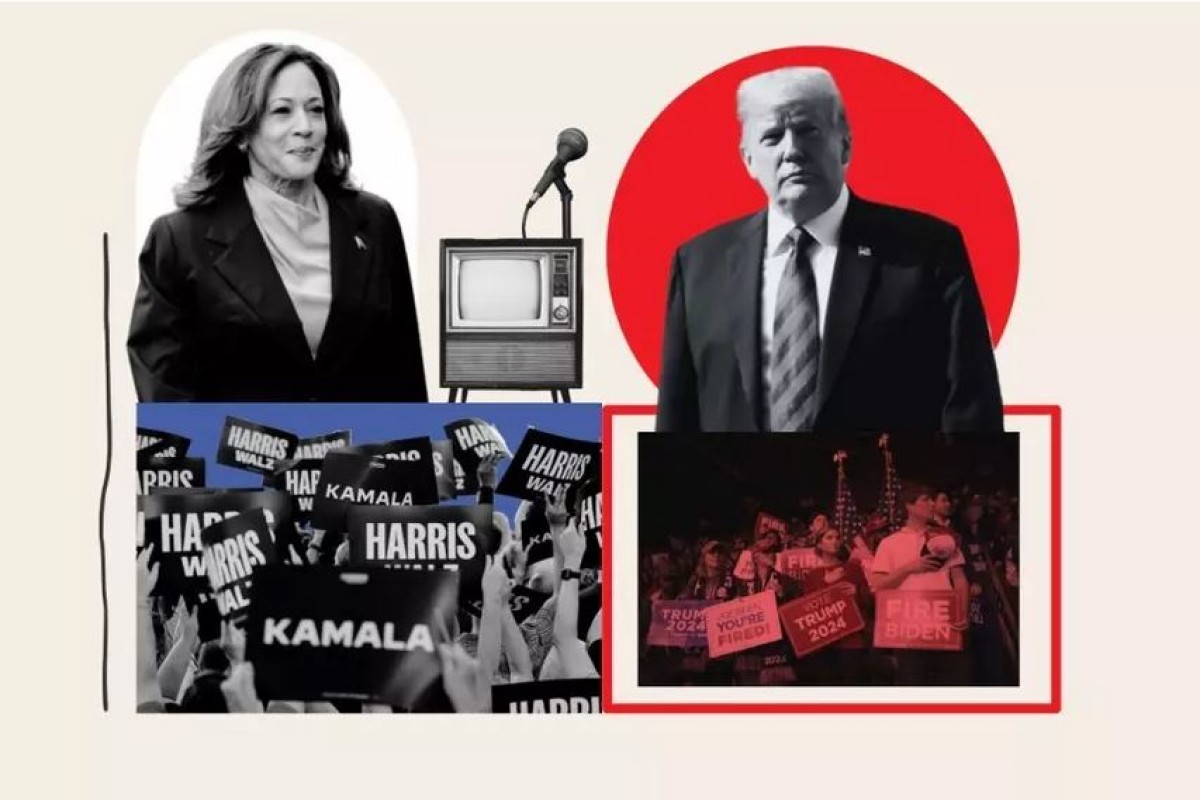 949
949
Trump’s Trade Wars or Harris’ Diplomacy? A Tale of Two Trade Visions
Trump’s Trade Wars or Harris’ Diplomacy? A Tale of Two Trade Visions
By: A. Mahdavi
As the United States approaches its next pivotal presidential election, the distinction between the two leading candidates—Vice President Kamala Harris and former President Donald Trump—has become increasingly evident.
Each candidate seeks to capture the favor of both the American electorate and the nation’s elite by articulating their respective visions for domestic and foreign policy. Their platforms, although solidifying as Election Day nears, will undoubtedly undergo further refinements as both attempt to sway the public. Ultimately, it is not simply policy but the candidates' ability to resonate with voters that will determine the victor in this complex electoral landscape.
At the core of both campaigns lies a shared rallying cry: "America First." It is a striking echo of Trump’s 2016 slogan, though now, this sentiment has transcended partisan lines. The rhetoric signals a broader recalibration in U.S. priorities, reflecting the nation's growing inward focus amidst an increasingly intricate global order. The emphasis on ensuring that American interests prevail in every international deal or event is not only a tactical move but also emblematic of the nation's shift from global leadership to domestic fortification. Both Harris and Trump, albeit through differing lenses, advocate policies that promise to restore America’s prominence by recalibrating its foreign engagements to deliver tangible benefits for the American people.
This inward tilt may herald a new era in American foreign policy—one marked by diminishing cooperation with long-standing allies, a potential weakening of historical alliances, and, possibly, the onset of a multipolar world. Under such a framework, countries long reliant on the predictability of U.S. partnerships may find themselves navigating new and uncertain dynamics.
Consider, for instance, Japan—a country often referred to as "the America of Asia." Since the end of World War II, U.S.-Japan relations have been a hallmark of strategic stability, grounded in mutual economic and security interests. However, during Trump’s presidency, Japan experienced significant strain as tariffs on industrial products, particularly steel, disrupted what had once been a smooth trading relationship. The imposition of a 25% tariff on Japanese steel imports was a clear signal of a U.S. administration intent on prioritizing American industry, even at the cost of alienating its closest allies.
President Biden’s ascent to power seemed to signal a restoration of relations. A recalibrated trade agreement between the U.S. and Japan in the steel and automobile sectors allowed Japanese exports within certain quotas to remain exempt from the steep tariffs. The deal fostered optimism, aligning with the Biden administration’s broader efforts to strengthen ties with traditional allies.
Yet, recent comments by Vice President Harris suggest that even the Democrats are not immune to a shift in trade policy. During a campaign rally, Harris intimated that the current steel trade agreement with Japan may need revision to prioritize American interests—a move that, while resonant with the “America First” doctrine, raises questions about the future of U.S.-Japan relations. If the steel deal is renegotiated with harsher terms, it could send shockwaves not only through Japan but also across other allied nations who rely on American economic partnership.
The specter of a trade war looms large. Although reminiscent of the tensions between the two nations in the late 1980s—tensions that were diffused through diplomatic dialogue and mutually beneficial agreements—the present moment carries its own risks. Should trade talks falter, and should the U.S. insist on exerting economic pressure, both countries could find themselves imposing escalating tariffs, to the detriment of their industries. Japan, with its smaller economic footprint, would likely bear the brunt of such a conflict, though in the grander scheme of international economics, no one emerges as a true victor in trade wars. The greater risk lies in the damage to U.S. credibility on the global stage, further complicating its standing in an increasingly multipolar world.
Despite Harris’ assertive rhetoric, the probability of an all-out trade war seems remote. America’s foremost strategic priority remains the containment of China, and the Biden-Harris administration is acutely aware that unnecessary friction with key allies like Japan could detract from that larger goal. What appears more likely is a delicate balancing act: ensuring that American industries, particularly steel, are shielded from undue foreign competition while maintaining vital alliances that are crucial to global stability.
In Kamala Harris, the American electorate is presented with a candidate who embodies both a pragmatic approach to domestic interests and a nuanced understanding of the intricacies of global alliances. Her willingness to reexamine trade deals reflects a broader commitment to protecting American jobs, while her broader diplomatic acumen suggests that any changes will be carefully measured to avoid unnecessary fallout. As the U.S. stands at a crossroads, Harris offers a vision that is firmly rooted in American strength—both at home and abroad—while ensuring that the nation remains a key player on the international stage. Whether this vision will resonate more deeply with voters than her opponent’s remains to be seen
 949
949
Comment
Post a comment for this article